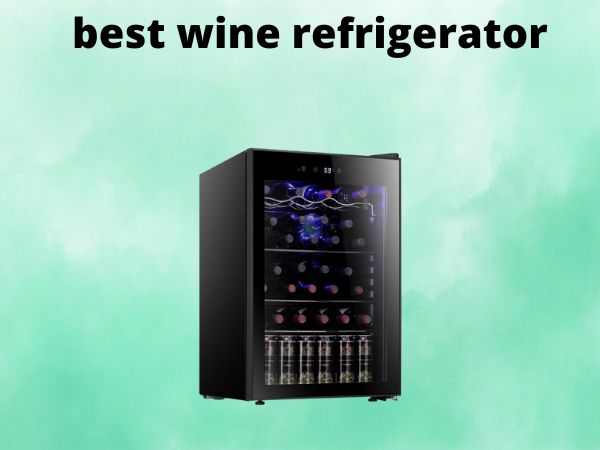Absorption Refrigerator vs Compressor Efficiency: Which Performs Better?
Are you in the market for a new refrigerator and trying to decide between an absorption refrigerator and a compressor-based model? It’s an important decision that can have a big impact on your energy bills and environmental footprint.
In this in-depth article, we’ll dive into the key differences between absorption and compressor refrigerators, explore their relative efficiencies, and help you determine which type is the better choice for your needs. By the end, you’ll have a clear understanding of the pros and cons of each technology so you can make an informed purchasing decision.
Table of Contents
Understanding Absorption Refrigerators
Let’s start by looking at absorption refrigerators. These appliances use a heat-driven cycle to create cooling, rather than the mechanical compressor found in traditional refrigerators.
The basic principle behind an absorption refrigerator is fairly simple. The refrigerant (typically ammonia) is heated, causing it to evaporate. This evaporated refrigerant then passes through a condenser, where it’s cooled and condensed back into a liquid. As the liquid refrigerant expands, it creates the cooling effect inside the refrigerator compartment.
Key Features of Absorption Refrigerators
- No Compressor: The lack of a mechanical compressor is the defining feature of an absorption refrigerator. This makes them quieter and allows for more flexible installation, as they don’t require a dedicated electrical circuit.
- Heat-Driven Cooling: Absorption refrigerators use a heat source, such as propane, natural gas, or even solar thermal energy, to power the cooling cycle. This allows them to operate using alternative energy sources.
- Vibration-Free: Without a compressor, absorption refrigerators produce virtually no vibration, making them a good choice for RVs, boats, and other mobile applications.
- Environmentally Friendly: Absorption refrigerators typically use natural refrigerants like ammonia or propane, which have a lower environmental impact than the synthetic refrigerants used in compressor-based models.
Understanding Compressor Refrigerators
Compressor refrigerators, on the other hand, use a mechanical compressor to circulate the refrigerant and create the cooling effect. This is the more common and familiar type of refrigerator found in most homes and businesses.
Key Features of Compressor Refrigerators
- Mechanical Compression: A compressor-based refrigerator uses a motor-driven compressor to circulate the refrigerant through the cooling system. This is the key difference from an absorption refrigerator.
- Electrical Operation: Compressor refrigerators require a dedicated electrical circuit to power the compressor and other components. This makes them less flexible in terms of installation options.
- Vibration and Noise: The mechanical compressor can produce some vibration and noise, though modern models are much quieter than older designs.
- Synthetic Refrigerants: Compressor refrigerators typically use synthetic refrigerants like R-134a or R-600a, which can have a higher environmental impact than the natural refrigerants used in absorption models.
Comparing Efficiency: Absorption vs. Compressor
Now that we’ve covered the basics of each refrigerator type, let’s take a closer look at their relative efficiencies and energy consumption.
Energy Efficiency
One of the key factors to consider when comparing absorption and compressor refrigerators is energy efficiency. This is important not only for reducing your monthly utility bills but also for minimizing your environmental impact.
Generally speaking, absorption refrigerators tend to be less energy-efficient than their compressor-based counterparts. The heat-driven cooling cycle used in absorption models is inherently less efficient than the mechanical compression process. Depending on the specific models and usage conditions, compressor refrigerators can be 30-50% more energy-efficient than absorption refrigerators.
Operating Costs
The higher energy efficiency of compressor refrigerators translates directly into lower operating costs. Over the lifetime of the appliance, the electricity savings can add up significantly.
However, it’s important to note that absorption refrigerators can be more cost-effective to operate if you have access to an alternative, inexpensive heat source, such as propane or solar thermal energy. In these cases, the operating costs of an absorption refrigerator may be lower than a compressor model, even with the slightly lower energy efficiency.
Environmental Impact
When it comes to environmental impact, absorption refrigerators generally have an advantage over compressor models. This is primarily due to the use of natural refrigerants, which have a lower global warming potential (GWP) than the synthetic refrigerants used in compressor refrigerators.
That said, the overall environmental impact of a refrigerator depends on more than just the refrigerant. The energy source used to power the appliance also plays a major role. If the electricity powering a compressor refrigerator comes from renewable sources, it may have a lower carbon footprint than an absorption refrigerator running on fossil fuels.
Factors to Consider When Choosing
So, which type of refrigerator is the better choice? The answer ultimately depends on your specific needs and priorities. Here are some key factors to consider when making your decision:
1. Energy Efficiency and Operating Costs
If minimizing your energy bills and carbon footprint is your top priority, a compressor refrigerator is generally the more efficient and cost-effective option. However, an absorption refrigerator may be the better choice if you have access to an inexpensive, alternative heat source.
2. Installation Flexibility
Absorption refrigerators offer more flexibility in terms of installation, as they don’t require a dedicated electrical circuit. This makes them a good choice for RVs, boats, and off-grid applications where electrical infrastructure may be limited.
3. Noise and Vibration
If you value a quiet, vibration-free appliance, an absorption refrigerator may be the better option, as they operate without a mechanical compressor.
4. Environmental Impact
For those concerned about the environmental impact of their appliances, an absorption refrigerator using natural refrigerants may be the more eco-friendly choice, depending on the energy source used to power it.
Conclusion
In the end, there is no one-size-fits-all answer when it comes to choosing between an absorption refrigerator and a compressor-based model. Both technologies have their own unique strengths and weaknesses, and the best choice will depend on your specific needs and priorities.
If energy efficiency and operating costs are your primary concerns, a compressor refrigerator is generally the better option. But if flexibility, noise, vibration, or environmental impact are more important to you, an absorption refrigerator may be the way to go.
Ultimately, it’s about weighing the tradeoffs and selecting the refrigerator that best fits your lifestyle and budget. Whichever you choose, be sure to do your research, compare models, and consult with experts to make the most informed decision.
FAQs
What is the main difference between absorption and compressor refrigerators?
The key difference is the cooling mechanism. Absorption refrigerators use a heat-driven cycle, while compressor refrigerators use a mechanical compressor to circulate the refrigerant and create the cooling effect.
Are absorption refrigerators more energy-efficient than compressor models?
No, generally speaking, compressor refrigerators are more energy-efficient than absorption models. Compressor refrigerators can be 30-50% more efficient, depending on the specific models and usage conditions.
What are the benefits of an absorption refrigerator?
The main benefits of an absorption refrigerator include more flexible installation options, quieter operation, and the use of natural refrigerants, which have a lower environmental impact than the synthetic refrigerants used in compressor models.
Can an absorption refrigerator be powered by solar energy?
Yes, absorption refrigerators can be powered by solar thermal energy, making them a good choice for off-grid or renewable energy-focused applications. The heat from solar collectors can be used to drive the cooling cycle.
What types of heat sources can power an absorption refrigerator?
Absorption refrigerators can be powered by a variety of heat sources, including propane, natural gas, kerosene, or even solar thermal energy. This flexibility is one of the key advantages of the absorption refrigeration technology.


